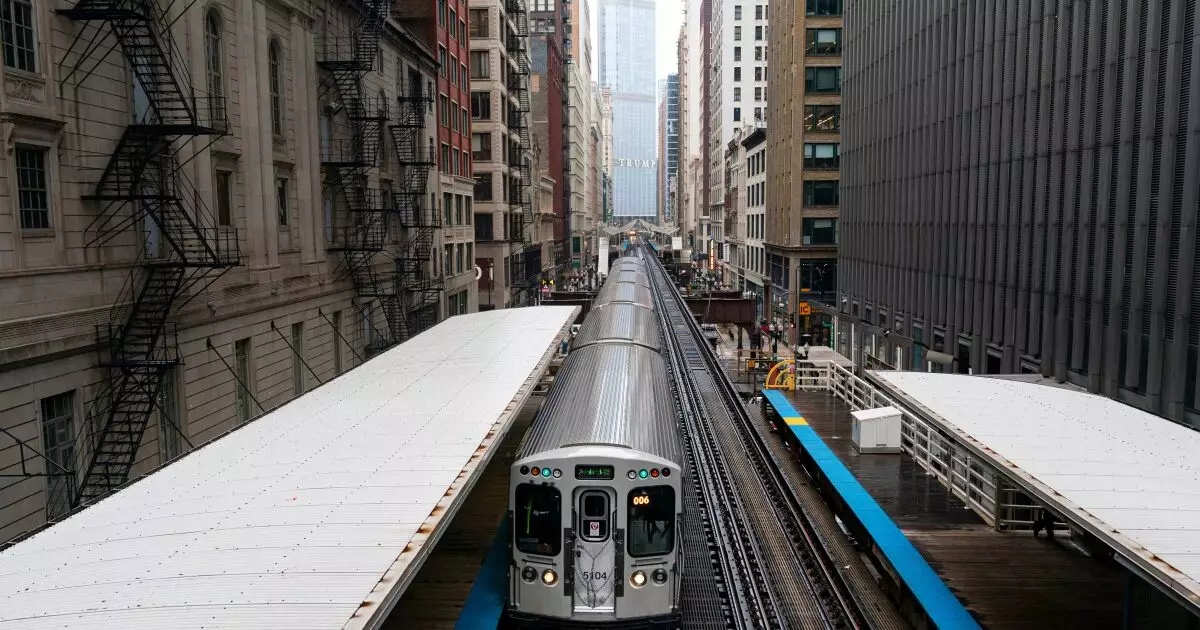The Chicago Transit Authority (CTA) finds itself in a precarious position, grappling with severe financial instability that threatens not just its operational viability but also the very structure of mass transit in the city. Recent observations from Moody’s Ratings paint a grim picture: the CTA has a projected operating deficit of a staggering $550 million by fiscal 2026, equating to a debilitating 25% of its operational budget. As a center-right liberal, I can’t help but feel a mixture of frustration and disbelief at the systemic failures that have led us to this crisis point. The reliance on federal pandemic relief funds signals that the agency is merely prolonging its agony rather than addressing the root causes of its fiscal issues.
Failure to Innovate in Governance
The clouds of uncertainty hovering over the CTA are exacerbated by legislative inertia in Springfield. Proposed governance reforms—including the consolidation under a new Metropolitan Mobility Authority—have been met with resistance from transit agency heads, signaling a lack of political will to innovate and adapt. This self-preservation instinct among current leaders deprives us of necessary advancements that could piece together the broken aspects of our transportation system. The complacency within transit leadership poses a direct contradiction to the demands of a city evolving rapidly in its demographic and economic profiles. Are we so blinded by outdated structures that we can’t see the economic lifeline innovative governance could offer?
The Reluctance to Adjust Fare Structures
Moody’s highlights a crucial point regarding CTA revenue streams: fare increases are unlikely to serve as a feasible solution due to the current ridership trends. But this raises an essential question: when does the time come for an honest conversation about fare reform? Fares acting merely as a nominal revenue stream, disconnected from the real costs of service provision, can only lead us deeper into financial quagmire. Fiscal responsibility shouldn’t cloak itself in populism—fair and sensible fare structures could ultimately lead to a healthier financial future for the CTA.
The State’s Apparent Apathy
The question of state support looms large, with experts like Matthew Butler pointing out the unpredictable nature of potential subsidies. The state has an obligation to ensure that transit systems are not left to fend for themselves, especially when systemic issues like these cry out for intervention. Yet, there seems to be no clear path to action. A reluctance to embrace robust funding mechanisms could doom not only the CTA but also the thousands who depend on it daily. Our public officials must recognize the importance of a well-funded, reliable transit system; it is not merely an operational concern but rather an essential service that embodies the equity and accessibility principles we claim to champion.
The Importance of Tax Revenue Over Fares
As we review different transit agencies across the U.S., it becomes evident that those that relied more heavily on tax revenue have fared better than those that leaned on fare collections. The CTA must adopt a forward-thinking approach and cultivate public support for an expanded tax base, which could provide the financial breathing room necessary for resurfacing from these depths. This pivot is not merely about financial stabilization; it is about preparing Chicago for a future where mass transit is modernized, inclusive, and efficiently run.
Long-term Implications of Inaction
Moody’s concludes that without additional state support, rising long-term liabilities, or a significant fall in operational liquidity, a downgrade of the CTA’s ratings could be inevitable. If this bleak forecast becomes reality, it would send ripples through the entire economic infrastructure of Chicago. A CTR-facing downgrade is not just a financial indicator; it’s a warning sign about the disintegration of societal commitments we’ve made to vulnerable communities who rely on public transit as their primary means of mobility.
The road ahead is fraught with challenges, but one thing is clear: a failure to act now could ensure that the CTA not only becomes our largest burden but also extinguishes hopes for a promising, interconnected future. The time to rethink our approach to funding, governance, and community engagement is now—we must not lose sight of our transit system’s invaluable role within the broader tapestry of Chicago.


Leave a Reply